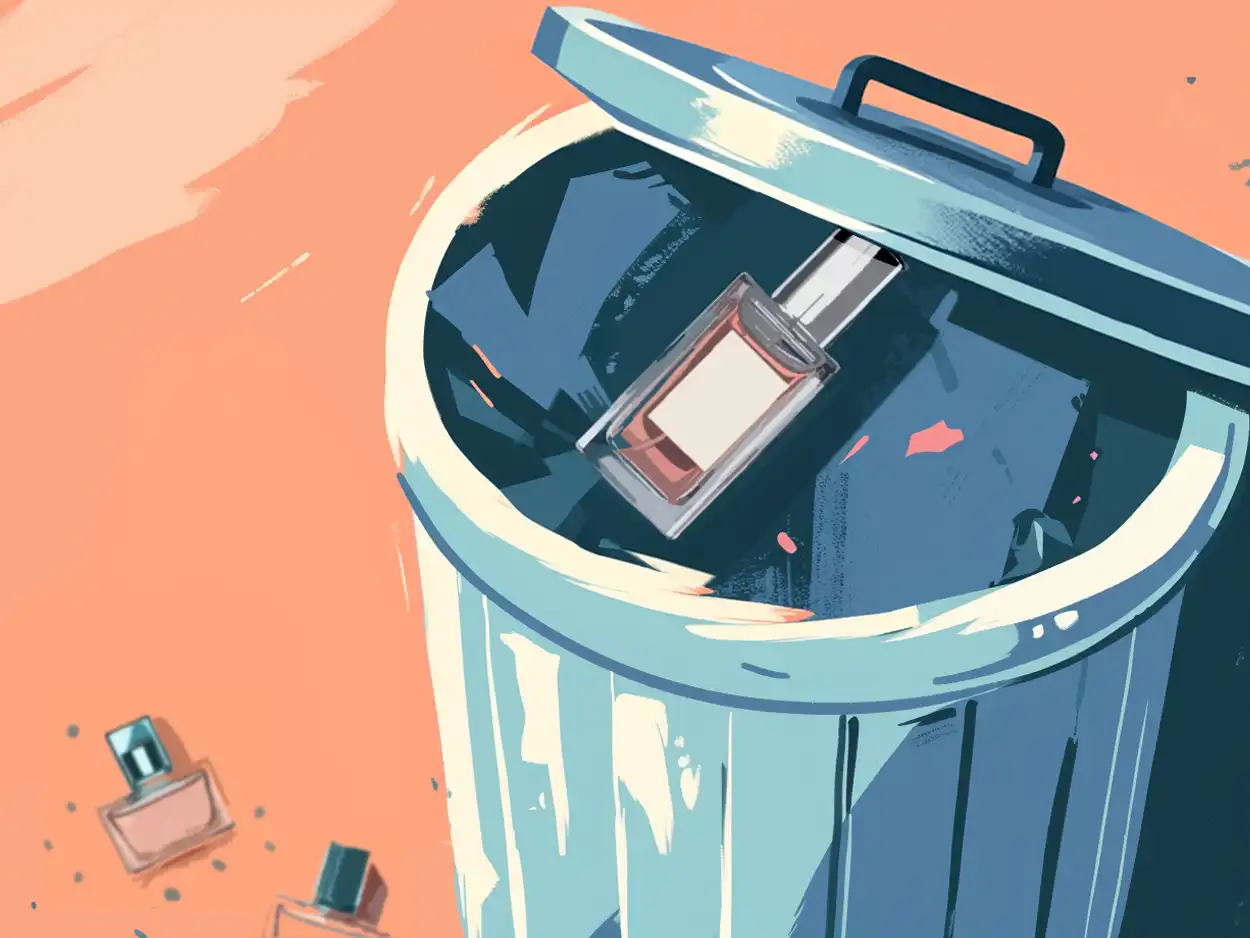Picture this: you’re getting ready for a special occasion, reaching for your favorite perfume, only to find that it doesn’t quite smell the way you remember. You might wonder, “Has my fragrance gone bad?” It’s a common question many of us have asked ourselves at some point.
After all, we invest in fragrances to smell our best, and it’s disheartening to think that our beloved scents might have an expiration date.
What is the shelf life of a fragrance?
The truth is, fragrances do have a shelf life, and it’s not just about the date printed on the bottle. The longevity of a perfume or cologne depends on various factors, such as the quality of ingredients, how it’s stored, and even the specific notes in the scent. On average, a fragrance can last anywhere from one to five years. However, some high-quality fragrances with heavier base notes may last even longer when stored properly. Conversely, lighter, citrusy scents tend to have a shorter shelf life due to the volatility of their ingredients.
Signs that your fragrance has expired
So, how can you tell if your fragrance has gone bad? One of the most obvious signs is a change in the scent profile. If you notice that the top and middle notes have disappeared, leaving only the base notes, it’s a clear indication that your perfume has expired.
Another telltale sign is if the fragrance starts to smell predominantly like alcohol. This happens when the aromatic compounds have broken down, leaving behind the solvent used in the perfume.
Oxidation is another factor that can cause a fragrance to expire. If you notice that the color of the liquid has changed or become cloudy, it’s a sign that the scent has been exposed to air and has started to deteriorate. This oxidation process can also lead to reduced performance, meaning the fragrance may not last as long on your skin or project as well as it once did.
In some cases, you might even notice changes in the texture or consistency of the liquid, which is another indication that it’s time to bid farewell to your beloved scent.
Factors that contribute to fragrance expiration
Now that you know the signs of an expired fragrance, let’s dive into the factors that contribute to its demise. One of the biggest culprits is exposure to light, heat, and humidity. Leaving your perfume bottle on a sunny windowsill or in a steamy bathroom can speed up the breakdown of the fragrance compounds, leading to a shorter shelf life. Improper storage, such as keeping the bottle open or exposing it to air, can also accelerate the expiration process.
Another factor to consider is contamination. Every time you apply perfume directly to your skin, you’re introducing bacteria and oils that can break down the scent. This is why it’s essential to avoid touching the applicator or dabbing the perfume directly onto your skin. Instead, spray the fragrance into the air and walk through the mist, or apply it to your clothes or hair to minimize contamination.
How to store your fragrances to maximize their lifespan
Proper storage is key to extending the life of your fragrances. To keep your scents smelling their best, it’s essential to store them in a cool, dry, and dark place away from direct sunlight and heat sources. A drawer, closet, or even a dedicated fragrance box can provide the perfect environment for your perfumes.
It’s also crucial to keep your fragrances in their original packaging, as the bottles are designed to protect the delicate compounds inside. Make sure to keep the caps tightly sealed when not in use to prevent air and moisture from entering the bottle. Avoid storing your fragrances in the bathroom, as the humidity and temperature fluctuations can accelerate the breakdown of the scent.
If you’re a fragrance collector or have a large collection, consider investing in a mini-fridge specifically for your perfumes. Keeping your scents at a consistent, cool temperature can help preserve their quality and extend their lifespan.
When to replace your fragrances
Even with proper storage, fragrances will eventually expire. As a general rule of thumb, if you notice any of the signs of expiration mentioned earlier, it’s time to replace your perfume. If you can’t remember when you purchased a particular fragrance, a good guideline is to replace it after three to five years, depending on the scent profile and ingredients.
However, there are some exceptions to this rule. Certain vintage fragrances, particularly those with heavier base notes like amber or vanilla, can age gracefully and even improve over time. These scents are often sought after by collectors and can be worn well past their expected expiration date.
Ultimately, the decision to keep or replace a fragrance comes down to personal preference. If you enjoy the way a scent smells, even if it has slightly changed over time, there’s no harm in continuing to wear it. Trust your nose and let your sense of smell guide you in determining when it’s time to say goodbye to a beloved fragrance.

